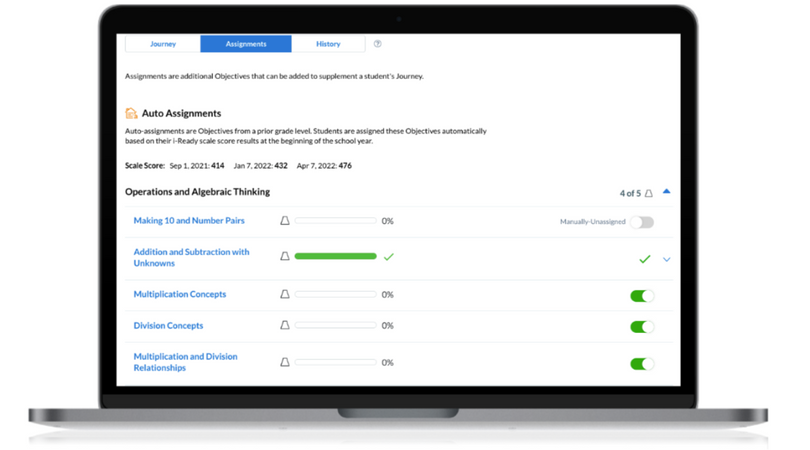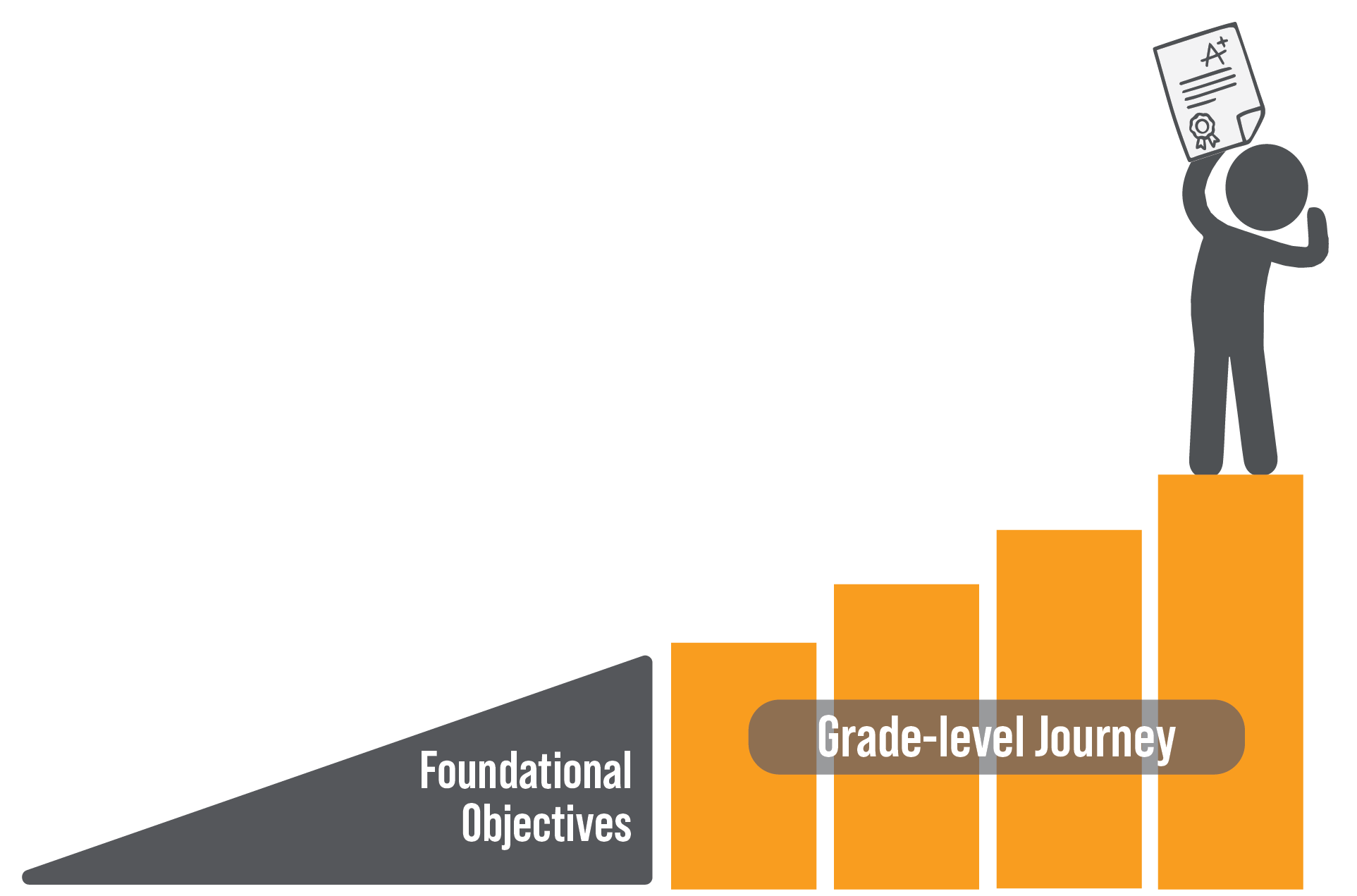Student math achievement has declined since the outset of the pandemic. Plummeting math scores reflect the alarming impacts presented by Covid-19, nearly erasing all the academic progress made in the past few decades. Students most affected by the challenges of the past two years include Black, Hispanic, and American Indian/Alaska Native (AIAN)s. Additionally, students with disabilities, English learners, and those from low-income backgrounds have also fallen behind.
Schools need to accelerate student math learning to restore the achievement levels we saw before the pandemic hit. But how?
Traditional accelerated learning approaches involve filling gaps in student education by re-teaching information. Often, educators are preoccupied with the question, “How should we teach?” A better question regarding accelerated learning strategies is, “How do we learn?”
Understanding the neuroscience of learning math can go a long way in accelerating student education, especially for students performing below grade level. But just as important, accelerated learning can have a positive impact on all student subgroups. Students in special education, English learners, and gifted students can benefit significantly from accelerated learning.
It’s why we created ST Math, to provide students with equitable access to learning. We wanted to continue this mission by developing the ST Math: Assessment Support Tool to aid teachers and administrators.

MIND Research Institute has developed a data-driven assessment approach to support students and empower teachers. The Assessment Support Tool complements the ST Math visual instructional program to help administrators and educators accelerate student learning. It enables students who require the most foundational support to progress successfully on their math journey.
Traditional approaches to accelerate learning have not successfully supported students in catching up to their grade level, leaving them unable to achieve the same level of success as their on-grade-level peers. Integrating the Assessment Support Tool with the ST Math program allows teachers to leverage existing assessment scores from NWEA and i-Ready by automatically assigning foundational math content and/or assigning additional content that a student might need.
The Assessment Support Tool not only supports MIND’s commitment to ensuring students remain on grade level, it provides a simple approach to ramping students into their grade-level content so they progress through their math learning successfully.

ST Math was created to support students from all backgrounds and with different needs. Students below grade level, and even high-achieving students, stand to gain a great deal from playing ST Math games. Through the broader, yet misguided, educational technology framework, the remedy is often to pinpoint those deficits and provide specific procedures to fill in what’s missing.
In reality, below-grade-level students haven't developed schemas around foundational knowledge that can support grade-level learning. Building up foundational schemas takes time. True learning is not about filling in student gaps or repeating lessons with the hope that students will eventually absorb all the material. What students really need is support in growing their schemas while building towards their on grade-level experience.
The Assessment Support Tool is our solution and way of providing those foundational schemas and deep conceptual understanding for critical areas of learning. At MIND, we want to keep students on grade-level content in ST Math as part of their main educational journey, even if they’re behind. This doesn’t mean that teachers cannot or should not strategically assign specific content from a previous grade level. Assigning lower-grade-level lessons can further scaffold on-grade-level learning.

Teachers will be relieved at how impactful the Assessment Support Tool is when making important instructional decisions for their students. The ST Math auto-assignment feature is tailored to each student based on their NWEA and i-Ready scores. While objectives will be automatically assigned to support students in their acquisition of crucial foundational knowledge, teachers can override these assignments at their own discretion.
Teachers are also encouraged to leverage the Assessment Support Tool data to make informed instructional decisions for each student. Data indicates that ST Math successfully improves student math learning when they remain on their grade-level journey by completing the required number of minutes per week playing puzzles. Teachers have the option of overriding auto-assigned content and/or assigning additional content that could supplement their ST Math usage. In this way, students can build the foundational skills they need.

As ST Math continues to evolve, its patented approach has, again and again, led to educationally meaningful math improvements and positive effects on learning overall. While ST Math has distinguished itself from the many existing instructional programs by leveraging the brain’s innate spatial-temporal reasoning ability, the Assessment Support Tool plays an integral part in further demonstrating its unique efficacy and helping students build deep conceptual understanding.
Our research indicates that students who require below-grade-level intervention can succeed with on-grade-level content using ST Math. Students who develop math concepts and solve unfamiliar math problems using visual models can access grade-level content. There are no language barriers. ST Math games are accessible to all students, regardless of skill level or language background. Additionally, the formative feedback component in ST Math supports students by engaging them in the perception-action cycle.
The Assessment Support Tool also supports ST Math in that it was designed around the principle of building foundational schemas. This strategy runs counter to the more pervasive, yet less effective, approach of filling skills gaps. The Assessment Support Tool provides different intervention levels based on a student's needs to accelerate their learning velocity, especially for those whose grade-level learning is not optimal. ST Math will auto-assign foundational curriculum to these students and offer the support they need.

Truly accelerating learning for math students is not easy, but it is achievable. As life-long learners, we're equipped with growth mindsets, tenacity, and determination. We can accelerate student learning, not just to recover learning loss, but to ensure that they excel in math and life. After all, our mission is to mathematically equip all students to solve the world's most challenging problems. The ST Math: Assessment Support Tool is a step in the right direction.
After the challenges that the pandemic has presented to us in the last few years, our students deserve better. It's time we reevaluate how to accelerate student learning. It's time for a new approach.

Victor Nguyen is MIND’s Content and Community Specialist. Victor is a passionate storyteller with a penchant for creative writing. In his free time, you can find him engrossed in books, going on long hikes, or trying to meditate.
Comment